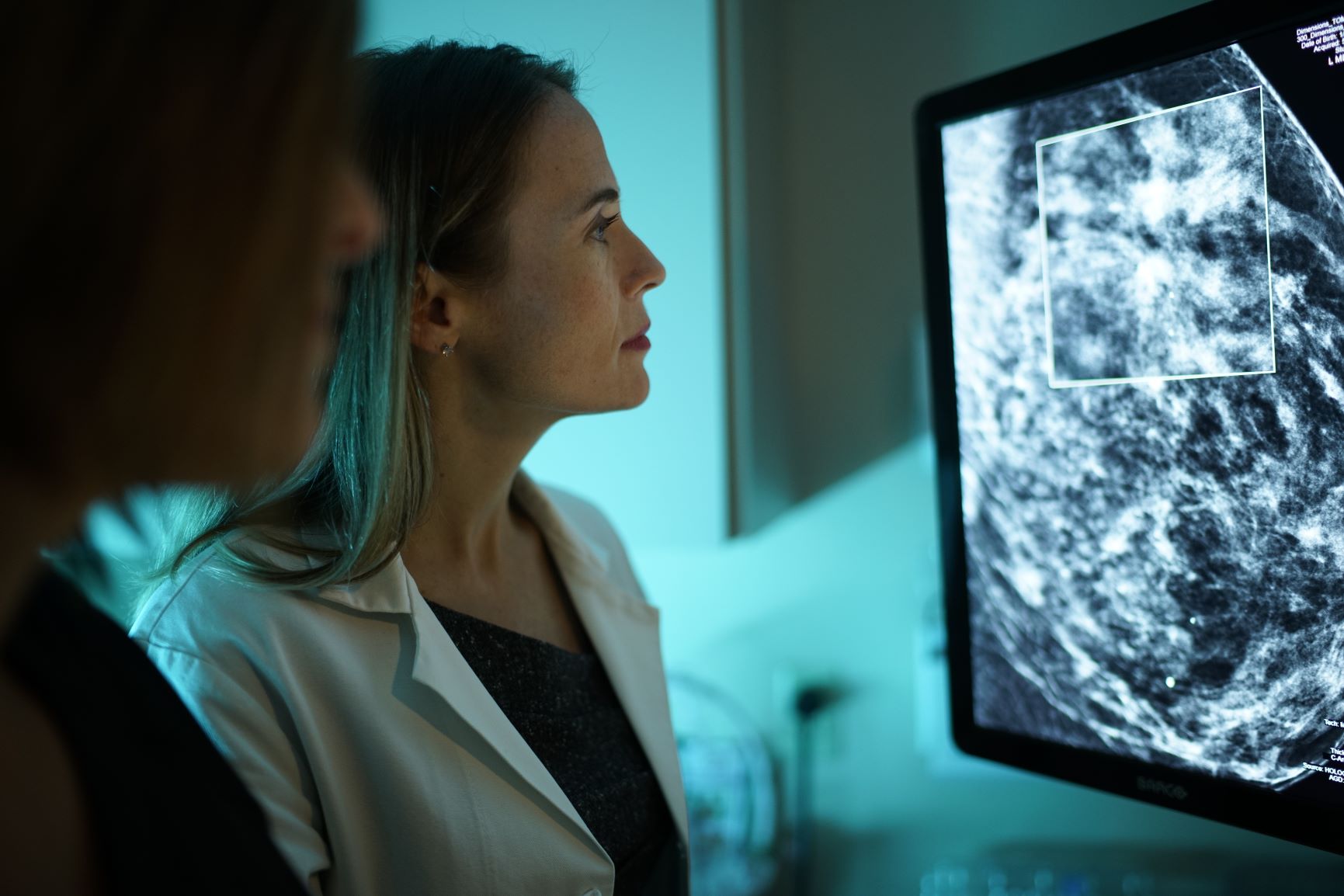For 81-year-old artist Bonnie Flanagan, an overall assessment of her health, which included a self...
Read More
Early detection and treatment are the keys to surviving breast cancer, one of the most common cancer diagnoses in women across the United States.

Fortunately, thanks to awareness campaigns and aggressive guidelines set by groups including the American Cancer Society, more people are aware of the importance of breast cancer screenings than ever before.
Regular screening should begin no later than age 45 in women of average risk but should start earlier if your doctor detects elevated risk. Some physicians who specialize in breast cancer diagnosis and treatment recommend annual mammography beginning at age 40 in women of average risk. After your first breast cancer screening, you should receive them annually until age 55 when you can start receiving them every other year. Your primary care physician will help you analyze your family history and gauge your risk.
For most, these screenings will be in the form of mammograms, a noninvasive X-ray technique that is considered the gold standard in breast imaging.
A mammogram is a low-dose X-ray designed for safe annual screening. Results from the procedure are usually printed but can also be delivered digitally. Three-dimensional mammograms, which provide a more detailed picture and are especially valuable for those with dense breast tissue, are also available. To schedule a mammogram at Inspira, you can request an appointment online or call 1-800-INSPIRA.
During a mammogram, you will be asked to stand by the machine and place your breast on the examination surface. A second plate will be lowered to flatten the breast, spreading the tissue and create the clearest picture. This will then be repeated on the other side. The process can be uncomfortable for some patients, but the procedure will be over in just a few minutes.
You may want to avoid scheduling a mammogram the week before your period, as your breasts may be more tender or swollen. This can contribute to discomfort. You should also avoid wearing deodorant, jewelry, perfume or powder. In many settings, you will only be required to undress from the waist up while being examined.
Your mammogram results will usually be available within a few weeks. In most cases, your doctor will only follow up if the results of the exam are concerning or inconclusive, but you should feel free to reach out and ask questions about your results. According to Dr. Allison Lawyer, MD, radiologist in Vineland, “an annual high-quality screening mammography, when combined with routine self and physician breast exams, offers women the best chance for early detection of breast cancer."
If results are inconclusive or concerning, the radiologist may recommend additional mammographic images, a breast ultrasound or even an MRI to provide more information. Based on the results of these additional studies, a biopsy of the tissue in question could also be scheduled to confirm your status.
Receiving regular mammograms is important to spot new changes, but even in the case of a negative scan, the images are added to your file as a benchmark in future screenings.
Though your radiologist is well-trained in spotting abnormalities, having a reference point can improve accuracy.
Amy shares her breast cancer story and how her annual mammogram and the doctors at Inspira saved her life.
Request an appointment for your mammogram online or by calling 1-800-INSPIRA. Please note: a prescription is required at the time of your visit.
To schedule a mammogram at Inspira, you can request an appointment online or call 1-800-INSPIRA. Please note: a prescription is required at the time of your visit.

For 81-year-old artist Bonnie Flanagan, an overall assessment of her health, which included a self...
Read More
Uncover the hidden connections between your family's past and your future well-being as we delve...
Read More
Treating cancer requires an arsenal of tools and preventive measures. Explore the power of...
Read More
The material set forth in this site in no way seeks to diagnose or treat illness or to serve as a substitute for professional medical care. Please speak with your health care provider if you have a health concern or if you are considering adopting any exercise program or dietary guidelines. For permission to reprint any portion of this website or to be removed from a notification list, please contact us at (856) 537-6772